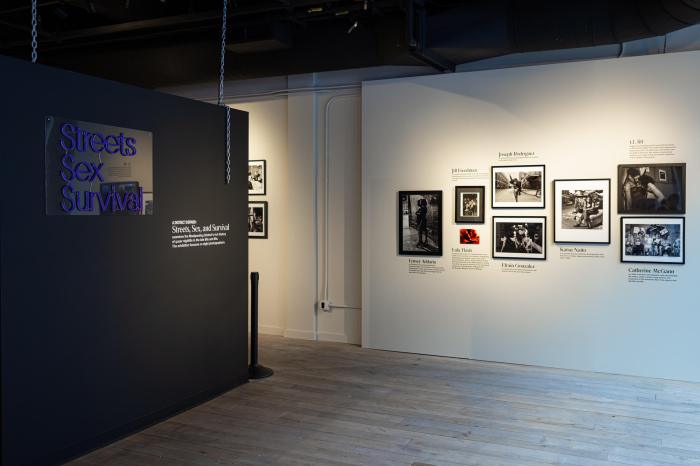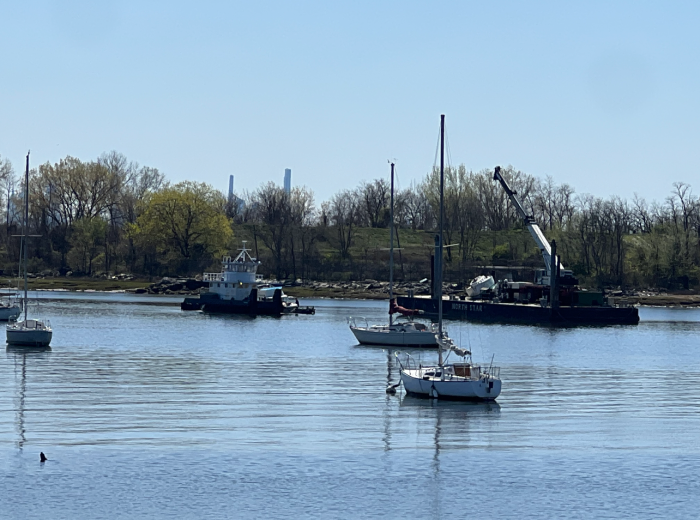Karen Kilimnik's current installation appears to be a collection of elegant paintings reminiscent of the Renaissance, or abstraction. But a closer look raises fascinating, hot-button and timeless issues. Small round and square paintings become portals that seem to punch through the walls of 303 Gallery to peek at the natural world.
In the front gallery hang paintings of slightly hazy blue skies. One is simply titled “Summer Zephyr.” But another is called “A Summer Day, 1763,” merging Kilimnik's playful conceptual and historical spin on contemporary art. The works comprising the show span from 2001 to 2007. Some of the more recent paintings feature mountains including the French Alps and the North Face. One, titled “the Sahara Desert at night,” with its similarly profiled alpine mountains and cold palette, forces a double take.
Behind the elegant delivery lies an unnerving message..
That juxtaposition points to a vein running subtly but vitally through the show – climate change. The snowy mountains could feasibly become desert following current trends. A group of paintings in the back gallery depict, somewhat ominously, underwater glimpses. They are richer in color and texture than the sky paintings, but with titles like “the pirate's cove,” “the Fiji Isles my underwater home,” and “neptune's home,” they force the viewer to consider the unsavory idea of dwelling in the sea.
Kilimnik shows a group of photos of cloud formations taken in the northeast but deemed tropical-normally found only in climates closer to the equator. Again, at first glance, the photos seem like harmless, pretty snapshots, but the underlying message is unnerving.
Her flair for subtle allegory surfaces in details that might escape notice in a hasty tour of the show. Thumbprint-size spots suggestive of diamond dust sparkle near some of the paintings, reminding us that we consume the earth's resources for often-frivolous uses. Gaudy crystal chandeliers, which hang low enough to graze the heads of tall passersby, similarly represent our society's penchant for luxury consumer goods mined from the planet.
Through the totality of the installation, Kilimnik has it both ways – setting a refined tone while delivering a powerful message.

































